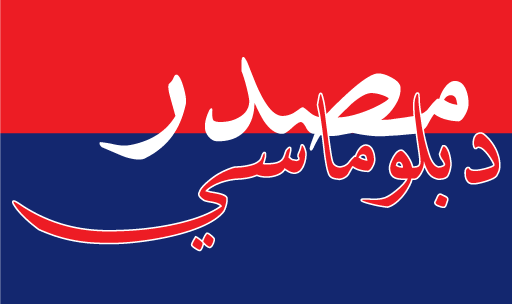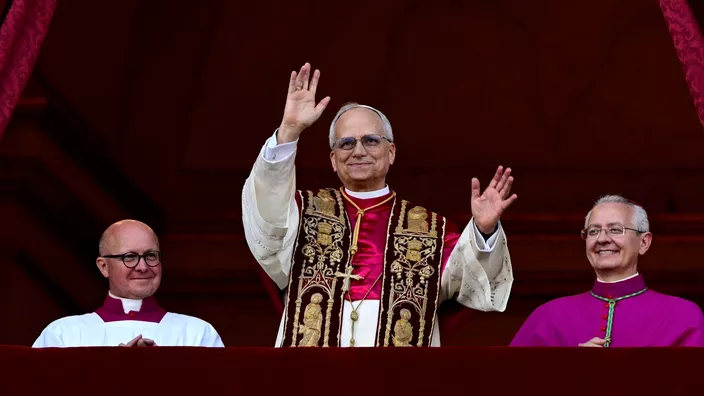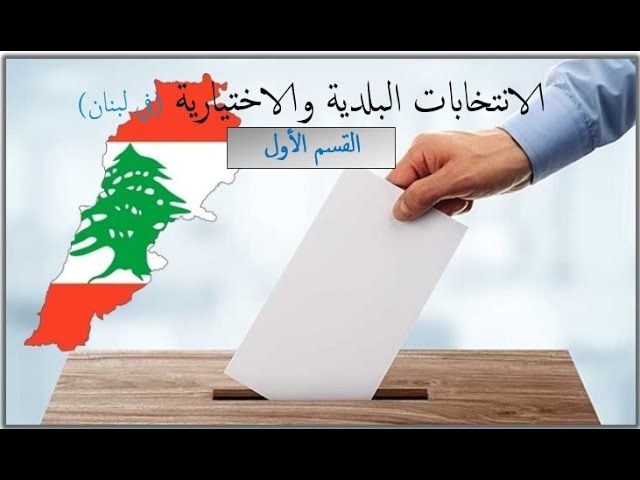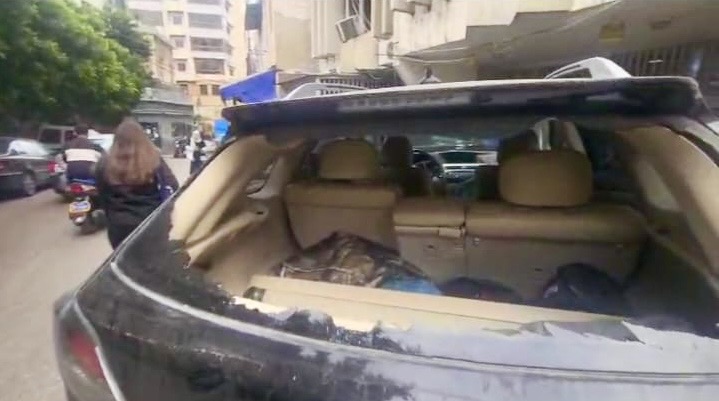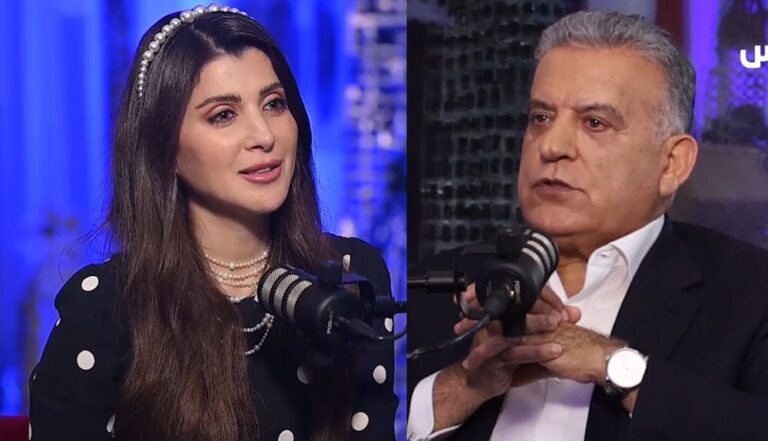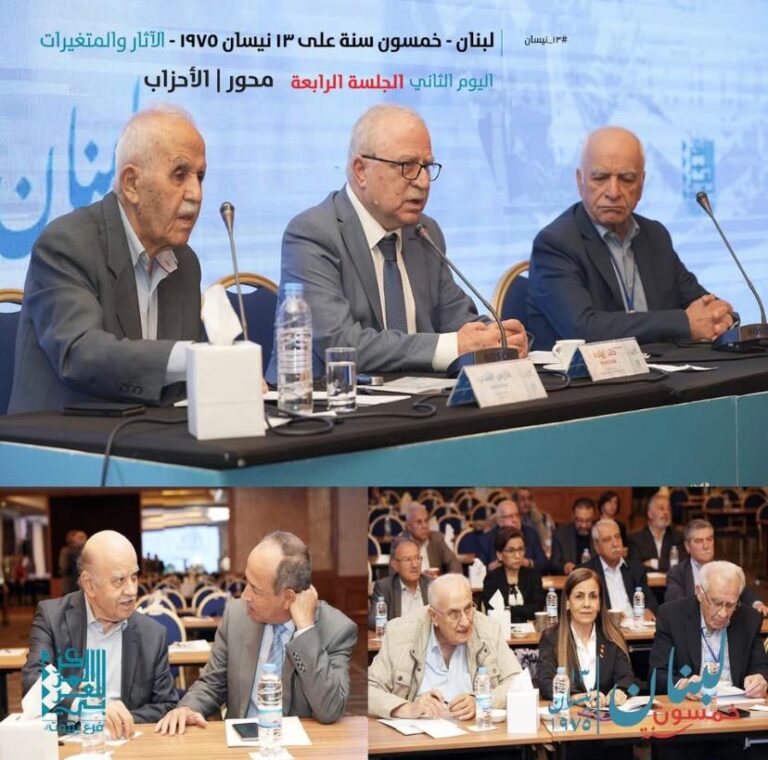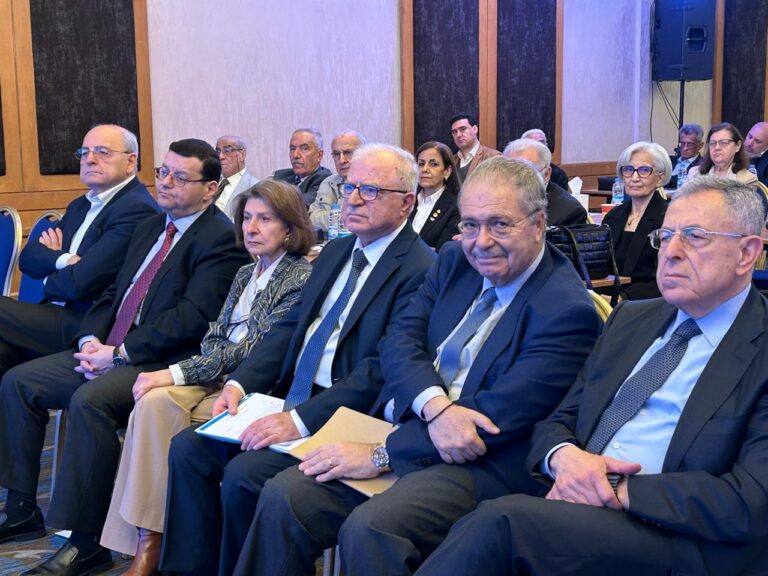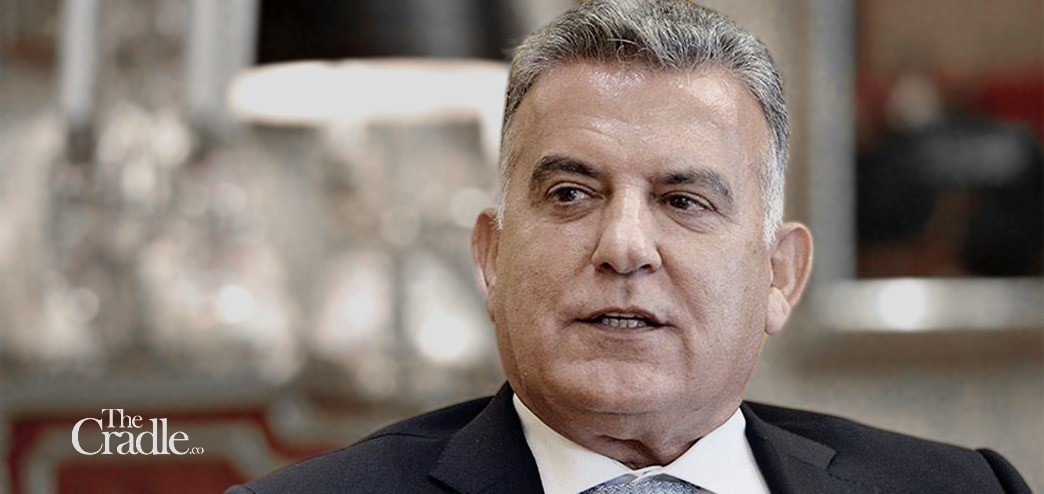
Lebanon's General Security Chief Abbas Ibrahim speaks exclusively to The Cradle on matters domestic and foreign
The Cradle
September 20 2021
Lebanese General Security Chief Abbas Ibrahim has become a key negotiator between foreign and domestic parties in the crisis-hit country. While the Lebanese worry about the American threat of sanctions, Ibrahim tells The Cradle it is “totally unlikely” that the US will sanction Lebanon
In an exclusive interview with The Cradle, Major General Abbas Ibrahim, Director General of the Lebanese Directorate of General Security, reveals the behind-the-scenes decision to send an official Lebanese delegation to negotiate with Syria on importing Egyptian gas and Jordanian electricity
The security chief, known for his contacts with all domestic parties and foreign players – which has catapulted his profile as a valuable regional mediator – discusses his position on opening Lebanon’s border with Syria and his relationship with Major General Ali Mamlouk, head of the Syrian National Security Bureau
Ibrahim also replays his conversation with an anti-Hezbollah, Western security attaché in Beirut about the controversial import of Iranian fuel. The influential foreign envoy, who lobbied against allowing Iran and its allies to break the western embargo on Lebanon, admitted to Ibrahim: ‘If I were Lebanese in this situation, I would have stood on the coastline and waved in the Iranian oil ship to speed up its arrival
The following is the interview with Abbas Ibrahim, translated from Arabic
The Cradle: There is a kind of American hegemony over all Lebanese decisions. What if Lebanon is placed under US sanctions? Wouldn’t that free Lebanon in a sense – by giving it the ability to make choices and decisions on its own? Especially in heading East
Ibrahim: I don’t think Lebanon will be put on the sanctions list. This is totally unlikely. Lebanon is a vital and essential country in the region, despite its small size. And strategically, it is very important to America and the West. Lebanon’s importance lies in its proximity to and border with occupied Palestine and so-called Israel
From this standpoint, I do not think that Lebanon as a country is threatened by sanctions. If any other country had half of the scene taking place in Lebanon, it would certainly have been placed on the sanctions list. As for the question of looking eastward, I am pleased to inform you that we are with any direction – whether East or West. The important thing is what is in the interest of Lebanon, that it brings good for the people of this country, and improves their living conditions
The Cradle: Do you think that Hezbollah’s continued import of oil from Iran may lead to American pressure and the threat of sanctions that may affect the beneficiaries of this oil
Ibrahim: Hezbollah announced that the Amanah Foundation will handle the distribution of oil, knowing that it is on the sanctions list. I do not think that an American decision – or any decision from anywhere – can be taken that could affect the Lebanese people directly or painfully at this point. I will disclose to you a conversation with a Western security attaché who visited me in my office recently. His visit coincided with the start of public discussions about the prospect of the Iranian fuel ships. On that day, I asked him: If you were in the place of the Lebanese people and a boat carrying gasoline or diesel came to help you, what would you do? The security attaché replied by saying: I would wave to them on the beach urging them to hurry up. This man, paradoxically, is an absolute Westerner and hostile to Hezbollah. If any measures are taken that would compound the crisis, it would pose a challenge to all the Lebanese people, not just to Hezbollah. It would directly affect the livelihood of the Lebanese people and, therefore, be counterproductive for anyone to oppose this fuel
The Cradle: What do you think about opening Lebanon’s border with Syria
Ibrahim: I support absolute open borders with Syria. Putting the political issues aside, this issue of opening the borders with Syria is a very necessary step, as Lebanon is incurring a lot of losses, especially at the economic level. I’ll give you an example to benchmark against. About a week ago, we brought 14 diesel and gasoline tankers (each with a capacity of 40,000 liters) that the Iraqi government gave as a gift to the General Security. When the tankers passed through Syrian territory, it turned out that we had to pay a fee of US $4,000 for each tanker. I was surprised by the fee, which I consider to be very large. These high fees are due to the lack of economic coordination between the Syrian and Lebanese states, given that the price used to be less than $1,000 for a single tanker before relations between Lebanon and Syria deteriorated. I think that facilitating trade traffic between the two countries requires a bilateral discussion about politics, not security
The Cradle: Lebanon, Syria, Jordan, and Iraq. There is a new kind of impetus and urgency in the relationship between these four countries that has emerged this year, starting with the gas file. How do you see this developing
Ibrahim: It is no secret what US Ambassador (to Beirut) Dorothy Shea announced on the gas file. I had a meeting with her specifically on this subject. Both gas and electricity must inevitably pass through Syrian territory; there is no way around that fact. It is necessary to coordinate with Syria to take into account its own views on the matter. A year and a half ago during the administration of US President Donald Trump, I requested a meeting with the American ambassador, in which I requested an exception from the US Caesar Act in the matter of purchasing electricity from Syria.
We draw 276 megawatts of electricity per day according to an annual agreement signed with Syria since 1970. The Caesar Act impeded Lebanon from gaining access to this vital electricity because any monetary payment to Syria was banned by order of this US decree. We tried to get an exception. I told the Americans that you gave Iraq an exception with Iran – you allowed Iraq to buy gas from Iran and pay in US dollars, even though your problem with Iran is greater than your problem with Syria. On that day, the American ambassador informed us that she had sent the request to Washington on humanitarian grounds because the energy would benefit hospitals, bakeries, and pharmaceutical factories. But Lebanon’s request was turned down by the US administration.
In my last meeting with Ambassador Shea during her visit to the General Security a few weeks ago, I revisited the issue of the previous US administration’s refusal to grant Lebanon an exception, which would have alleviated the suffering of the Lebanese. When raising the issue of Egyptian gas and electricity, I explicitly told her that I must visit Syria to obtain their approval. I told her that no matter the pressure on Syria, as long as Damascus did not agree, we could do nothing [with Egypt] because it is Syrian territory the gas must traverse and we cannot have gas or electricity without this authorization.
The Cradle: Can you tell us about your mediation in the gas file with the Syrian side? How was the communication with the Syrian side? Who did you talk to
Ibrahim: I contacted Major General Ali Mamlouk, with whom I communicate on all issues. On that day, Major General Mamlouk waited for me to respond before informing me the next day that the Syrian side agreed to the principle. He requested that an official Lebanese delegation visit Damascus to discuss the issues with an official Syrian delegation, and whatever conclusion the two sides reached would be approved by Syria. Accordingly, we formed an official delegation and both the President of the Republic and the Prime Minister signed a specific agreement, and we went to Syria
The Cradle: Were there any complications? How will this step be completed
Ibrahim: No, never. Frankly, in matters like these that address humanitarian issues and basic needs, the Syrians are very cooperative. They are always positive about helping meet Lebanon’s needs, but they were waiting for a healthy official relationship with Lebanon. I think that the next step must be completed by an official Lebanese decision on the transit line through Syria to all Arab countries. This issue will significantly reduce the burden of costs on farmers and industrialists.
The Cradle: Who stopped the return of displaced Syrians to Syria
Ibrahim: The Covid virus stopped the return of displaced Syrians. No one stopped us, because the condition for return in the first place is that it be voluntary and safe. I have opened 17 centers in Lebanon, and anyone who wants to return to Syria will have their name registered in one of the centers. The Syrian authorities are informed that these Syrian nationals wish to return. In turn, the Syrian authorities respond to each name. For example, they notify us if someone who wants to return has a security file and will be referred to court. We were informing the displaced of this, and asking them if they still wanted to return. If they refuse, we do not force them to return. If they agree, they bear the responsibility. In addition to this, we bring representatives from the UNHCR (United Nations High Commissioner for Refugees) to interview the members of each convoy before it leaves for Syria to ask if any of them are under pressure to return. The Coronavirus caused the border to shut down completely, and after the wave of infections receded, we tried to revive the return, but we did not notice a turnout from the displaced Syrians as before
The Cradle: Did you check if the displaced Syrians were returning to their homes, camps, or detention centers?
Ibrahim: We have nothing to do with that. Still, the return is voluntary and that is their choice. Those who wish to return bear the responsibility of that choice themselves, obviously. There were embassies and international organizations that informed us that some of the returnees were arrested and tortured in Syria. We asked the Syrian authorities about them, but they denied this and requested that they be provided with the names of those allegedly tortured. I will tell you frankly about an incident that happened with us. On one occasion, we registered the name of a Syrian who wanted to return. We raised the name to the Syrian authorities, who told us that he could return. Upon reaching the border, he was immediately arrested. Here, we called the office of Major General Mamlouk to inform them of what happened, and the answer was that they made a mistake in checking. They agreed that he should return to Lebanon. This is just for transparency
The Cradle: The Lebanese General Security took a decision to deport the Reuters bureau chief in Jordan and prevent him from entering Lebanon, which caused a media uproar. Why did you take this decision and what is the story
Ibrahim: This is a security story. We have a security file on this man. We stipulated a condition that his baggage be searched by the security services to allow him entry to Lebanon, but he refused. We told him that his refusal to be searched by the security services would prevent him from entering, and this is what happened. We have a security file on this man, and that is linked to our sovereignty
The Cradle: Does the General Security monitor foreign journalists in Lebanon
Ibrahim: No, we do not monitor journalists. Media professionals who enter Lebanon are not monitored. There is an office associated with the Ministry of Information called the External Information Office. We revived the relationship with this office a short time ago to monitor these issues to ascertain whether they are really journalists or impersonators
The Cradle: Are there supposed to be stricter conditions in dealing with foreign journalists
Ibrahim: We are certainly with media freedom, but there is a difference between media freedom and espionage. There must be scrutiny if someone is actually a journalist and what they are about to do because we recently noticed people who came to Lebanon and photographed many areas to publish in the occupied territories. It turned out they were Israelis under the guise of journalists.
The Cradle: How can a country not have trade borders with Syria and close it? Do you think there is a tendency on the part of the new government, headed by Najib Miqati, to open the borders
Ibrahim: My opinion is clear in this regard. I am in favor of opening Lebanon’s borders with Syria, the normalization of trade between the two countries, and the signing of economic bilateral agreements. We have not yet seen any signs in this regard with the newly formed government. But after the visit of an official Lebanese delegation to discuss the procurement of energy and Egyptian gas with Syria, I think that it has become easy for the Lebanese government to make a decision to coordinate at the economic level
The Cradle: Are you closer to the Syrians or the Americans
Ibrahim: I am the closest thing to you and closer to Lebanon. You will find me wherever Lebanon’s interests lie. Thus, you see me having multiple contacts with conflicting parties because my first calculation is the interest of my country. And I have no problem talking to anyone except the Israeli enemy
The Cradle: When was the last time you met Syrian President Bashar Assad
Ibrahim: I met him a year and a half ago. I was carrying a letter from the President of the Lebanese Republic
The Cradle: How is your relationship with Major General Ali Mamlouk? When you meet him, what do you talk about
Ibrahim: I first met Major General Ali Mamlouk before the Syrian crisis when he was the head of State Security. By virtue of my job, we were constantly communicating. Our relationship continued when he was promoted to head the National Security Office. As for our conversations, we mostly discuss and exchange information on security-related issues, more specifically, the files of Al- Qaeda and terrorism. This relationship bore fruit in Lebanon, as there are many terrorists who were arrested in Lebanon based on information from Syria. This relationship benefits many foreign countries because we coordinate indirectly between some of these countries and Syria for the security of these states
The Cradle: Where is the Palestinian refugee file today on your list of interests
Ibrahim: I still follow the Palestinian file at the political but not the operational level. The relationship is with the Palestinian factions, whether coalitions or organizations. This is a central issue for us. We have a special department at the General Security to follow up on Palestinian affairs.
The Cradle: How do you combine the Qataris, Saudis, Syrians, Iranians, and Americans? When they deal with you, they deal with you as whose man?
Ibrahim: They treat me as someone with many files. And they deal with me as someone who can communicate with all Lebanese parties. They deal with me as sincere in conveying messages and giving advice.
The Cradle:Why is the General Security conducting an investigation on international organizations?
Ibrahim: This is normal. The Lebanese law and provisions regulating the work of the General Security in Lebanon gave us this right without having any security or non-security reasons. We follow up on all international organizations in Lebanon to know the nature of their work, but we have not seen any irregular activity yet
The Cradle: Amnesty International announced that you will deport five Syrians whose lives are threatened in Syria. What is the story, and why are their lives threatened in Syria
Ibrahim: This is not true. We did not issue a decision to deport them. The army originally handed them over to us; we did not arrest them. I would like to draw your attention to the decision by the Higher Defense Council issued on 19 April last year, which states that anyone who surreptitiously enters Lebanese territory is handed over to the General Security for deportation to Syria. But after we received a number of reviews that the lives of these displaced people were in danger, we took the decision not to deport them. You asked me about it and I told you that we informed the organization that takes care of refugees that we did not intend to deport them. Frankly, I was surprised that an organization the size of Amnesty International would issue a report without having any information about the case or access to the file, or without even checking with us to verify the information
The views expressed in this article do not necessarily reflect those of The Cradle
Author
